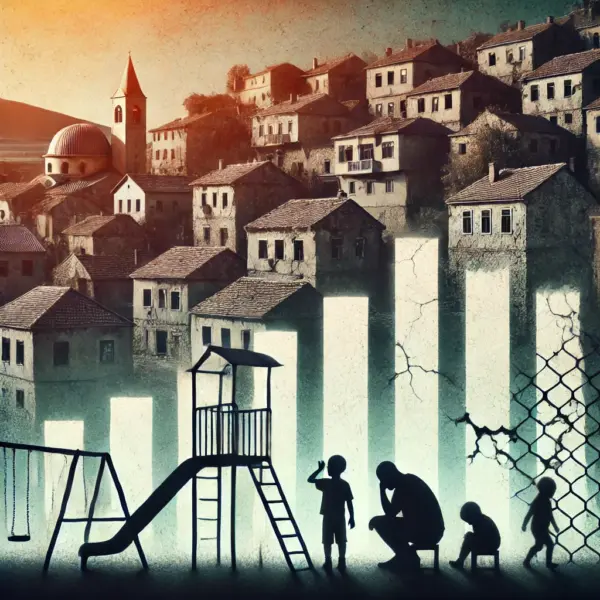 Piše: Poskok.info
Piše: Poskok.info
Svi se mi volimo pohvaliti demografskim uspjesima, pričama o napretku i brojkama koje nekako čarobno rastu. No, kad pogledate stvarnost, shvatite da nema te bajke koja može sakriti činjenice – a one su, u slučaju naše regije, poprilično sumorne. Ujedinjeni narodi su nas nedavno počastili svojim demografskim projekcijama, a brojke su toliko šokantne da bi i najtvrdokornijeg optimista bacile u depresiju.
We all love to boast about demographic success, stories of progress, and magically growing numbers. But when you take a look at reality, you realize there’s no fairy tale that can hide the facts – and in the case of our region, those facts are quite grim. The United Nations recently updated their demographic projections, and the numbers are so shocking that even the most die-hard optimist would fall into depression.
Prema tim podacima, Bosna i Hercegovina će do 2100. godine izgubiti čak 1,8 milijuna stanovnika. Ako ste mislili da je sada loše, pričekajte još malo. Ujedinjeni narodi predviđaju da će populacija u cijeloj regiji biti prepolovljena – kao da su odlučili prepoloviti stanovništvo kao što mi prepolovimo kruh u dućanu kad nam fali za cijeli. Dakle, do 2100. godine, broj stanovnika na području bivše Jugoslavije past će na svega 11 milijuna.
According to these projections, Bosnia and Herzegovina will lose a staggering 1.8 million people by 2100. If you think things are bad now, just wait. The United Nations predicts that the population in the entire region will be halved – as if they decided to slice the population the way we slice bread in the store when we can’t afford a whole loaf. So, by 2100, the number of people in the former Yugoslavia will drop to just 11 million.
Razlog? Pa, tu dolazimo do onoga o čemu svi šutimo – novaca. Koliko para, toliko nataliteta. Brojke pokazuju da se fertilitet dramatično smanjuje. Dok su naše bake rađale djecu kao da nema sutra, danas smo sretni ako parovi imaju dvoje. I nije to samo problem kod nas – cijeli svijet ima isti problem, ali nama u regiji, izgleda, ide najgore.
The reason? Well, here we come to the thing we all keep quiet about – money. The more cash, the more kids. The numbers show that fertility is dropping dramatically. While our grandmothers used to have children as if there was no tomorrow, today we’re lucky if couples have two. And it’s not just a problem here – the whole world is facing the same issue, but it seems like we’re doing the worst in the region.
Srbija će, kažu, imati tri milijuna manje stanovnika, Hrvatska 1,7 milijuna manje, a BiH će pasti na samo 1,36 milijuna ljudi. Da, dobro ste pročitali – 1,36 milijuna. Toliko ljudi bi stalo na jedan veći koncert. Ne, stvarno.
Serbia, they say, will have three million fewer people, Croatia 1.7 million fewer, and Bosnia and Herzegovina will drop to just 1.36 million people. Yes, you read that right – 1.36 million. That’s about as many people as you’d find at a big concert. Seriously.
I dok UN projekcije zloslutno najavljuju našu demografsku apokalipsu, odgovori naših političara su, naravno, kratkoročni i blještavi. Uvijek iste priče o “kratkoročnim mjerama” koje bi trebale spasiti stvar. No, pitanje je hoće li tih par mjera biti dovoljno da se preokrene trend. Jer, na kraju dana, koliko para, toliko nataliteta.
And while the UN projections ominously predict our demographic apocalypse, the responses from our politicians are, of course, short-term and flashy. It’s always the same stories about “short-term measures” that are supposed to save the day. But the question is whether those few measures will be enough to reverse the trend. Because at the end of the day, the more money, the more kids.